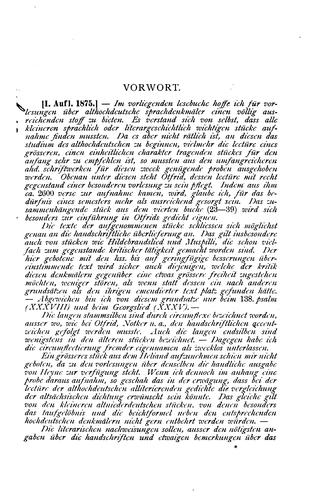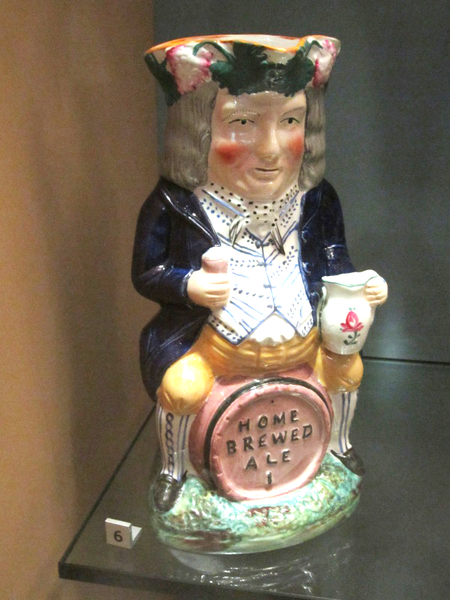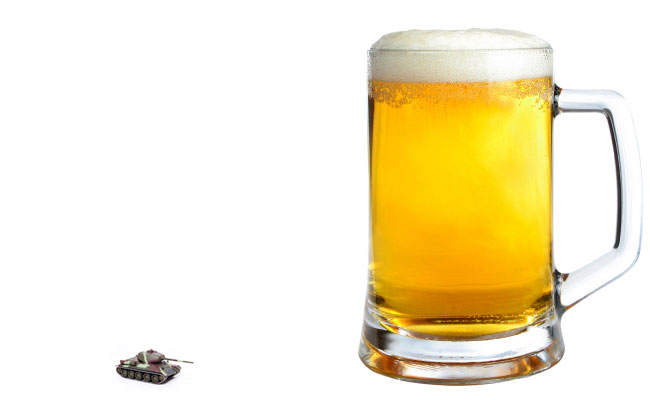By Anatoly Liberman
One more drinking vessel, and I’ll stop. Strangely, here we have another synonym for bumper, and it is again an old word of unknown origin. In English, goblet turned up in the fourteenth century, but its uninterrupted recorded history began about a hundred years later. Many names of vials, mugs, and beverages probably originated in the language of drinkers, pub owners, and glass manufacturers. They were slang, and we have little chance of guessing who coined it and in what circumstances.
Goblet may have been one of such coinages. French gobelet means the same as Engl. goblet, a word with a history not less obscure than that of its English namesake. The diminutive suffix -et is Romance, so that gobelet looks like the name of a little gobel. Unfortunately, we have no idea what a gobel is or was. Only gobeau has been attested. Nor does the suffix provide secure guidance to the origin of goblet. To be sure, the word may have been French, suffix and all, though it is strange that gobeau, not gobel, has turned up. On the other hand, a Romance suffix could be added to an English noun. Strumpet is almost certainly a Germanic word, but -et, as I mentioned in one of my previous blogs, turned a homegrown English whore into a classy Frenchified harlot. We had similar trouble with -ard in tankard.

An Old High German Reader by Theodor Wilhelm Braune.
~
goblet are not restricted to French and English. Spanish
cubilette seems to be a close cognate going back to Medieval Latin
cupellum “cup.” However, the similarity may be due to chance, because it remains unclear why the French and the English reflex of initial
c (that is,
k) should have been
g. Derivation of
gobelet from
cup/cupellum, directly or via French, was proposed long ago. However, since the beginning of English lexicography it has had a strong rival. French
gober means “swallow, gulp down.” Given such a root,
goblet can be understood as a vial whose contents had to be gobbled up hurriedly or greedily — less than a fully convincing interpretation. Besides, we are in the dark about the origin of
gober. Braune (1850-1926), one of the most distinguished German language historians, who had a rather frustrating habit of giving his name as Wilhelm on book covers but Theodor when signing his articles (so that for a long time I could not decide whether Wilhelm and Theodore, those precursors of Oscar Wilde’s Mr. Bunbury, were one person or two), isolated the root
g-b ~
g-f in the Romance languages and traced it to Germanic. A seemingly ill-assorted group of words, including
goblet,
gag,
giggle,
goggle,
javelin,
jig,
jug, and quite a few others, found themselves in the same group. If a scholar less solid and of less fame than Braune had come up with such a list, it would have been laughed out of court. As a matter of fact, a series of articles by him, all of which are like the one in which
gob and
goblet occur (1922), had minimal influence on Germanic etymologists; it seems because they have been ignored rather than rejected as containing fanciful ideas.
Not unexpectedly, a connection between gob and goblet occurred to many people before 1922. To justify it, goblet was defined as “a cup containing a long quantity for one opening of the mouth, for one draft or swallow” (Charles Richardson). How much one can drink at one opening of the mouth depends on the size of the consumer’s throat and cannot serve as a foundation for a secure etymology. Hensleigh Wedgwood, who always tried to detect sound imitative roots in English words, explained goblet so: “The names of vessels for containing liquids are often taken from the image of pouring out water, expressed by forms representing the sound of water guggling out of the mouth of a narrow-necked vessel.” As usual, he cited numerous words from various languages bearing out his conclusion. Wedgwood’s etymology makes sense, and many dictionaries offer some version of it, specifying that the source of gob might be the Irish word for “mouth” and “beak.” I have a curious confirmation of his hypothesis. Russian drunks are in the habit of sharing a half-liter bottle among three people. But how can 500 grams be divided into three equal parts? Strangely, in the process of careful pouring a half-liter bottle yields 21 “glugs.” Each thirsty alcoholic receives seven glugs. This is (at best) what scholars call anecdotal evidence. We still face the question whether gob and goblet are related. Nor should it be forgotten that goblets are not narrow-necked.

Uncle Toby
Those who have read
my essay posted two weeks ago will remember that Ernest Weekley derived
tankard from a proper name. He offered a similar etymology for
goblet and many other vessels. This is what he said (I will only expand his abbreviations): “
goblet. Old French
gobelet, diminutive of
gobel,
gobeau. All these words are French surnames, Old High German
God-bald, god-bold (cf. Engl.
Godbolt), and the vessel is no doubt of same origin. Cf. Engl. dialectal
gaddard, goblet, Old French
godart, Old German
Gott-
hart, god-strong, named in same way. See
goblin, and cf.
demijohn,
jack,
gill,
jug,
tankard, Middle Engl.
jubbe (Job) in Chaucer, etc.” In the entry
tankard, he also mentioned
toby-jug,
bellarmine, and
puncheon. Under his pen
goblin ended up as a diminutive name of
Gobel. A
Toby Philpot jug, or simply Uncle Toby, was made in the shape of a stout man in a long coat, knee breeches, and three-cornered hat, seated. The phrase
no doubt, when used in etymological studies, always makes me wince.
Toby is a clear case. Perhaps Weekley guessed well that
tankard has something to do with
Tancred, but the path from
God-
bald to
goblet is not straight. As concerns style, Weekley’s entries resemble Braune’s article: inspiring but a bit reckless.
Thus, we have several conjectures: goblet may go back to Latin cupellum, via French, or to Engl. gobble (which may be traced to Irish gob), or to the name God-bald, admittedly, not much to choose from. In a very general way, Braune may have been right. It seems that goblet is ultimately a Germanic word (regardless of its putative ties with Irish gob “beak, mouth”) and that its derivation from Latin and French, though supported by such authorities as Skeat, should be treated with a grain of salt.
When dictionaries explain the rhetorical figure of hendiadys, they sometimes give the example drink from gold and goblet for drink from golden goblets. Let this fact efface the salty impression left by the last sentence, above.
 Anatoly Liberman is the author of Word Origins…And How We Know Themas well as An Analytic Dictionary of English Etymology: An Introduction. His column on word origins, The Oxford Etymologist, appears here, each Wednesday. Send your etymology question to him care of [email protected]; he’ll do his best to avoid responding with “origin unknown.”
Anatoly Liberman is the author of Word Origins…And How We Know Themas well as An Analytic Dictionary of English Etymology: An Introduction. His column on word origins, The Oxford Etymologist, appears here, each Wednesday. Send your etymology question to him care of [email protected]; he’ll do his best to avoid responding with “origin unknown.”
Subscribe to Anatoly Liberman’s weekly etymology posts via email or RSS.
Subscribe to the OUPblog via email or RSS.
Image credits: (1) Cover page for Althochdeutsches Lesebuch (1888) via Open Library. (2) Toby Jug, Walker Art Gallery, Liverpool, England. Reptonix free Creative Commons licensed photos via Wikimedia Commons.
The post Drinking vessels: ‘goblet’ appeared first on OUPblog.

By Anatoly Liberman
One drinks to the coming New Year, and one drinks while remembering the old one. Besides, some do it according to the Gregorian calendar, while others prefer the Julian one. As could be expected, the end of the world has been delayed and life continues. I was touched by the kind words from our regular correspondents; over time they have become my good friends. Although I cannot provide them with drinks (distance learning is possible, but no software has yet been invented for distance drinking), I am ready to go on with my series “Drinking Vessels.” Now that we have dispensed with bumper, the turn of tankard has come around.
If you want to know the origin of tankard, you are advised to look it up in some of our best reference works. In The Century Dictionary (CD), you will read: “…origin unknown. The notion that the word is from tank ‘a pool of deep water, natural or artificial’ is wholly untenable.” The first edition of the CD appeared in 1889, before the birth of armored cars on caterpillar wheels. Henry Cecil Wyld’s The Universal Dictionary of the English Language was published in 1932. Like CD, it contains excellent etymologies and says the following about tankard: “…origin uncertain; perhaps connected with tank.” Enlightened by this information, we can now start from scratch.
As early as 1266, the Latinized form tancardus turned up in a British source. In a 1317 inventory of golden and silver vessels from Florence, two grandi tancardi and two piccoli tancardi are mentioned, which means that tankards have not always been large. In French, tancquard surfaced only in Rabelais, so at least two centuries later. Old Dutch tancquaert, which graces the pages of many English dictionaries, is misleading, because the word has not been attested until the early Modern Dutch period (the digraph ae designates long a, as in Engl. spa). Given the order of the forms at our disposal, tankard looks like a genuine English word, genuine not as meaning that it is of Anglo-Saxon descent but that it was coined in England. Its structure makes one think of the elements tank (the root) and the suffix -ard. However, tank had not been recorded in English until the seventeenth century, and despite Wyld’s and many other people’s suggestion could not be the etymon of tankard, as Skeat pointed out long ago. The suffix provides no clue to the word’s origin. The home of -ard was Old High German, from where it spread to Old French. In Modern English it is mildly productive and turns up in both French borrowings (bastard, coward, and the like) and native words, such as drunkard (a nice dialectal noun is dizzard “blockhead”). The origin of some words ending in -ard, including buzzard and blizzard, has been a matter of involved speculation, while leopard has no suffix at all.
Tankard does not have to be tank + ard; it may be tan- + -kard (or -card). A modern tankard contains a quart, and more than one scholar has derived the name of the vessel from the volume of the liquid that fills it to the brim. Tri-quart? This is not a good idea. Tri- would be hard to change into tan-, and we should not forget the piccoli tancardi of the Florentine inventory: piccoli (plural) means “small,” and, to make matters worse, why three? Also, the French spelling with final -d complicates the connection between -kard and quart. Or perhaps tan- is from tin-, which is from French étain “tin,” unless it is from étang, the French reflex of Latin stagnum “pool”? The last etymology is not too different from the one that traces tankard to tank + -ard, because in at least two languages of India (the country from which tank came to England) tank “pool” has possible Sanskrit antecedents. Among some impressive-looking etymological dictionaries of English some are unoriginal and often unreliable. Such is, for example, the work by Ernest Klein. He says about tankard: “From tant quart,” that is, “only a quart.” Perhaps he borrowed this etymology from one of his predecessors, but I have not seen it anywhere else. Unfortunately, Yoshio Terasawa copied it in his English-Japanese dictionary. Stay away from hasty products and dissociate tankard from both tank and quart.

This is a tank, and THIS IS A TANKARD.
Charles Mackay, my constant target of regretful derision, suggested that tankard had come from Irish Gaelic teann “stretch forth” and caraid “friend”: “…the etymology would point to the same original idea as that of the English loving cup, a goblet stretched forth in friendship or affection, for friends to partake of.” This conjecture, of the same order as bumper from bon père, is fanciful and doesn’t explain why the medieval British term should have come to English from Gaelic. Equally unconvincing were attempts to reduce tankard to sound imitation, as though from twang. One should of course beware of dismissing anything Skeat said as unacceptable, but the etymology he offered in the first edition of his dictionary (1882) has little to recommend it. He derived (tentatively) tankard from Swedish stånka “large wooden can; tankard” (before him, Wedgwood looked for a Norwegian source of tankard). As a parallel, he referred to Engl. standard “a standing bowl.”
Drinks have frequently been used as a form of punishment. Consider students’ emptying a sconce at Oxford and Cambridge. Some victims have been obliged to drink a huge quantity of intoxicating swill at one gulp (Peter I of Russia enjoyed this entertainment; he was a great czar). To add an element of hilarity to public humiliation, the construction of the vessel might prevent it from being stood on its bottom. The best proof that such glasses existed is the word tumbler “footless goblet,” which needs little help from etymologists to tell its story. But just as we are puzzled by the Irish heritage of tankard in Mackay’s explanation, we wonder why a Swedish word should have become so popular all over Europe. If borrowed from the Vikings, it would hardly have been Latinized and made its way to Italy. Skeat had moderate trust in his etymology from the start but never quite gave it up.
The author of the first English etymological dictionary (1617) was John Minsheu. He derived tankard from Latin cantharus (originally a Greek word) “chalice; tankard,” by metathesis (cantha- to tanka-). The coincidence is indeed striking. Minsheu’s etymology was known very well. Skinner (1671), Junius (1743), Todd (in Johnson-Todd, 1827), and Eduard Mueller (1867) endorsed or at least mentioned it, and it emerged in The Gentleman’s Magazine in 1768. That is why I was surprised to read in Skeat that, when all is said and done, the best hypothesis can be found in Webster-Mahn (1864): tankard is probably an alternation of cantharus. What gross injustice! Mahn replaced Webster’s Armenian-Hebrew derivation with Minsheu’s, and Skeat couldn’t possibly be ignorant of the authorship of the cantharus-tankard idea. Apparently, he wrote the entry in a hurry.
Minsheu’s idea is clever. Switch around cantha- and tanka-, add a suffix, and you will get tankard. Similar examples of metathesis are not too few, but why should the change have occurred in this word? I will quote Ernst Weekley’s suggestion (with abbreviations expanded). “I take it [tankard] to be a jocular metathesis (? due to the fame of the Crusader Tancred), of Latin cantharus, … suggested by the personal name Tankard, once common and still a surname…. A similar metathesis is seen in Norwegian, Danish hopper, pox, for earlier pokker.” So be it. The names of vessels often go back to personal names, as Weekley indicated. Perhaps tancardus, from cantharus, was the result of ignorance, perhaps it originated in the language of topers, who seldom speak distinctly and are prone to cracking silly verbal jokes, or they might have toasted Tancred much too often and got it all wrong. But isn’t it instructive that three centuries after Minsheu we are bound to admire his perspicacity and acknowledge his wit? Tankard, nearly rhyming with drunkard, may have nothing to do with cantharus, but even more probably it does.
 Anatoly Liberman is the author of Word Origins…And How We Know Themas well as An Analytic Dictionary of English Etymology: An Introduction. His column on word origins, The Oxford Etymologist, appears here, each Wednesday. Send your etymology question to him care of [email protected]; he’ll do his best to avoid responding with “origin unknown.”
Anatoly Liberman is the author of Word Origins…And How We Know Themas well as An Analytic Dictionary of English Etymology: An Introduction. His column on word origins, The Oxford Etymologist, appears here, each Wednesday. Send your etymology question to him care of [email protected]; he’ll do his best to avoid responding with “origin unknown.”
Subscribe to Anatoly Liberman’s weekly etymology posts via email or RSS.
Subscribe to the OUPblog via email or RSS.
Image credits: (1) Toy Army Tank with Camouflage Paint Scheme Isolated on White. Photo by yusufsarlar, iStockphoto. (2) beer. Photo by Chepko, iStockphoto.
The post Drinking vessels: ‘tankard’ appeared first on OUPblog.

Anatoly Liberman is the author of Word Origins…And How We Know Themas well as An Analytic Dictionary of English Etymology: An Introduction. His column on word origins, The Oxford Etymologist, appears here, each Wednesday. Send your etymology question to him care of [email protected]; he’ll do his best to avoid responding with “origin unknown.”





